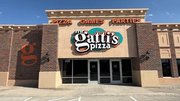Article
Saying no to digital: Why haven't all restaurateurs embraced new POS systems?
A new study looks at why many restaurants haven't implemented a digital POS system.

December 26, 2015 by Cherryh Cansler — Editor, FastCasual.com
While technology has become a vital component of operations management at many restaurants, a new research study found that 63 percent of operators still don’t have a digital POS system in place, said Justin Guinn, Restaurant Market Researcher at Software Advice, which conducted the study by speaking with thousands of operators. He found that many operators are still using a combination of hand-written tickets and receipts, traditional cash registers and a credit card terminal.
FastCasual.com chatted with Guinn to find out why so many operators are lagging behind when it comes to their POS systems.
FCC: From those conversations, did you learn any of the top reasons why almost two-thirds of restaurants don't have a POS system in place?
Guinn: From our conversations, we found that the main reason so many restaurants haven’t adopted POS is due to the cost of the system. Many restaurant owners are intimidated by what they think the average costs are of purchasing, implementing and onboarding a new POS system. However, POS systems are now more affordable than ever before, even from just 2 or 3 years ago. With advances in POS technology and the widespread adoption of tablets as dependable POS platforms, the many options of low-priced tablet-based, mobile POS (mPOS) systems are becoming more and more common.”
FCC:Did you find any POS preferences for restaurants who are looking for a system?
Guinn: Speaking of these tablet-based, mobile solutions, we found that 72% of restaurant owners we speak with are requesting tablet POS systems, and the majority of these owners are specifically requesting iPad-based systems. These mPOS systems feature all the same capabilities as traditional POS systems, so restaurant owners aren’t sacrificing functionality for a sleek new POS design.
FCC: What are some of the major benefits that mobile POS systems offer to a restaurant who's either never had a POS system before, or are considering replacing their current legacy system for something a bit more modern?
Guinn: The mobility enabled by mPOS systems offers restaurants a more efficient workflow and improved customer experience to provide to guests. Rather having to write down or memorize a table’s order and then walk to the POS terminal to input it, servers can input an order on their mPOS device as the table tells it to them. Servers can then review the order (on the screen) with the table before sending it off. This greatly reduces server errors while also engaging the customers with quality service.
Another benefit of mPOS also revolves around the ordering process. Rather than have servers write down or try to remember featured items to promote and add-ons to upsell, many mPOS systems feature ‘forced modifiers’ which do that job for the server. So when a server puts in a hamburger, the forced modifier will prompt the server to ask about additional toppings, or upgrading to onion rings for example, and can even recommend a beer or wine pairing. This has a direct positive effect on revenue.
FCC: Does a mPOS make it hader to tip?
Guinn: No, tablet-based systems can lead to an increase in tips for the server. We see this as a circular correlation where the POS system makes the dining experience more positive for the patron, thus they have a tendency to dole out higher tips. Higher tips means happier employees, which leads back to a greater likelihood for a strong customer experience. All of this of course is good news for the restaurant operator, who’s always looking for their customers to enjoy their meals and for their employees to be happy.
FCC: It seems like there are a lot of options today for mPOS systems. Are there certain things you think restaurant operators should ask themselves when comparing systems?
Guinn: As more mPOS options hit the market, it’s important for restaurant owners to ensure they’re getting the best system for their business. Owners need to have a formal list of needs that should be gathered by input from all their staff. With this, they can have some specific and generalized requirements that an mPOS system should satisfy.
 ChatGPT
ChatGPT Grok
Grok Perplexity
Perplexity Claude
Claude








